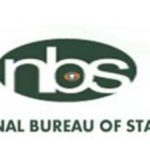NCC Sees Rapid Growth in Broadband, Resumes 2.6GHz Spectrum Licensing Round
 The Nigerian Communications Commission (NCC) has announced resumption of the licensing round for the 2.6GHz Spectrum band.
The Nigerian Communications Commission (NCC) has announced resumption of the licensing round for the 2.6GHz Spectrum band.
The Executive Vice Chairman (EVC) of the NCC, Dr. Eugene Juwah, who announced the resumption at the weekend advised interested parties to look up the Information Memorandum (IM) on the Commission’s website and be guided accordingly.
The IM defines the process that the Commission has decided to adopt for the licensing of 2×70 Megahertz (MHz) paired spectrum available in the 2.6GHz band. The IM also provides information on the Nigerian telecommunications market, details of the spectrum to be made available, pre-qualification process, the auction process and indicative timetable among others.
Director, Spectrum Administration (DSA), Engr. Austin Nwaulune, who threw more light on the proposed exercise said the 2.6GHz Spectrum has been influenced by the need to open up the space for the delivery of present and future generations of broadband services to subscribers in consonance with the Nigerian National Broadband Plan of 2013-2018, noting that the spectrum band is key for both new entrants and incumbent operators. The Commission arrived at this after wide consultations with relevant industry stakeholders to determine the best way to issue the spectrum.
“Based on these and observations of developments in the international licensing trends, the Commission has decided to license the available 2×70 MHz slot in slots of 5MHz to be aggregated by applicants through the spectrum auction process,” according to the IM.
The Spectrum will be offered on technology neutral basis but for rollout basis, the Commission will follow the International Telecommunications Union (ITU) recommendation, setting aside Spectrum in the 2.6GHz band for the provision of Advanced Wireless Broadband Services.
The Reserved price is pegged at $16 million for a lot of 2×5 MHz.
At the end of the auction, each winning licencee will be issued a National Spectrum licence for 10 years and will also qualify for a Unified Access Service Licence (UASL).
The IM states clearly that “on completion of the Auction Process, the Commission will issue each winner a ten year National Spectrum licence on a state by state basis and the Federal Capital Territory. Each winner who does not currently hold a Unified Access Service License (UASL) which is the operational licence, will be issued one at an additional fee of N374.6 million.”
The exercise in an Ascending Clock Auction, is expected to hold in Abuja during the week, commencing May 4, 2015.
To pre-qualify, an applicant does not necessarily have to hold any telecommunications operational licence but must fulfill the following:
- Must be independent from all other applicants under this allocation process;
- Must transfer an intention to Bid Deposit (IBD) being ten percent of the reserved bid price;
- Licenced operators participating in the process must fulfil all existing obligations to the Commission including payments of Annual Operating Levy (AOL), Spectrum and National Numbering Plan fees prior to pre-qualification.
Nwaulune told journalists that the NCC opted for the auction exercise for most of its spectrum sales because it is an efficient way to assign scarce spectrum resources.
- Better approach to manage competition;
- A fair and transparent allocation process;
- Allocation to those most likely to deploy resources valuably and to meet the market circumstances, among others, adding that the NCC is determined to put in place measures to improve Broadband penetration in the country.








